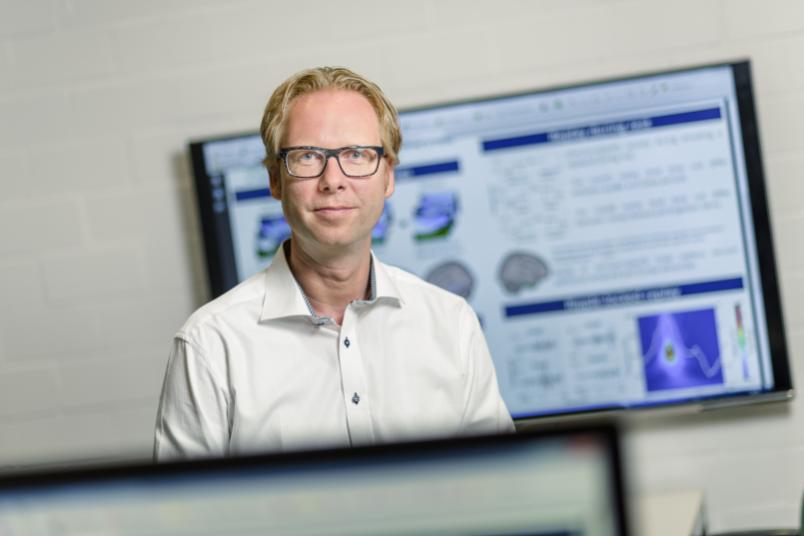
Interview
From physician to researcher
Nikolai Axmacher discloses the greatest challenges he faced when working with epilepsy patients and why his professional career was not entirely free of risks.
Sleeping consolidates new memories. However, what exactly is happening in the brain during this process is not yet known. Prof Dr Nikolai Axmacher aims at answering this question. In his studies, he – together with his team – records brain activity from epilepsy patients.
Prof Axmacher, you study epilepsy patients. However, epilepsy is not your research subject. You intend to learn more about the human brain in general. Why did you choose to work with that patient group?
Epilepsy patients offer the unique opportunity to record EEG from areas located deep in the brain, because they have electrodes implanted in the brain for medical reasons. We would never otherwise get access to such data in humans.

It will never be possible to be one hundred per cent sure if the answer is yes or no.
Is the brain of an epilepsy patient representative of the brain of a healthy person?
This question crops up after every other lecture that I hold. And it is a reasonable thing to ask. It will never be possible to be one hundred per cent sure if the answer is yes or no. Still, evidence suggests that it is the case.
Focal epilepsies do not affect the entire brain; rather, they are limited to one region and perhaps an additional network where the pathologic brain activity is transferred during seizures. But the brain activity in the hemisphere opposite to the seizure focus is relatively normal. Typically, patients present only very specific neuropsychological deficits.
As a safety measure, we only analyse the EEG data obtained in the hemisphere opposite to the seizure focus. This approach is probably more conservative than necessary.
Which was the greatest challenge when working with epilepsy patients?
The time when I conducted research at the university clinic in Bonn while working full-time as a hospital doctor was very difficult for me. Some patients knew me as their attending physician. I had to tell them: today I’m here as a researcher, not as your doctor. We are conducting a study. We would be glad if you participated in it, but it won’t benefit you; it will only benefit us. It wasn’t easy to separate these two roles.
Did many take part?
Approximately two thirds of the patients we asked. Many considered the participation in the study a nice change. It is a very stressful phase in the patients’ lives. They sit in their beds and wait for seizures to occur, while electrodes record their brain activity.

That was quite risky.
Today, you focus solely on your research. How long did you work as a physician?
A bit less than a year. Then, I only filled in every now and then when a colleague was ill or on holiday. I did not complete my specialist training, either, but became a full-time researcher instead. That was quite risky. Had I not succeeded in securing a permanent position, I would have been stranded without a job.